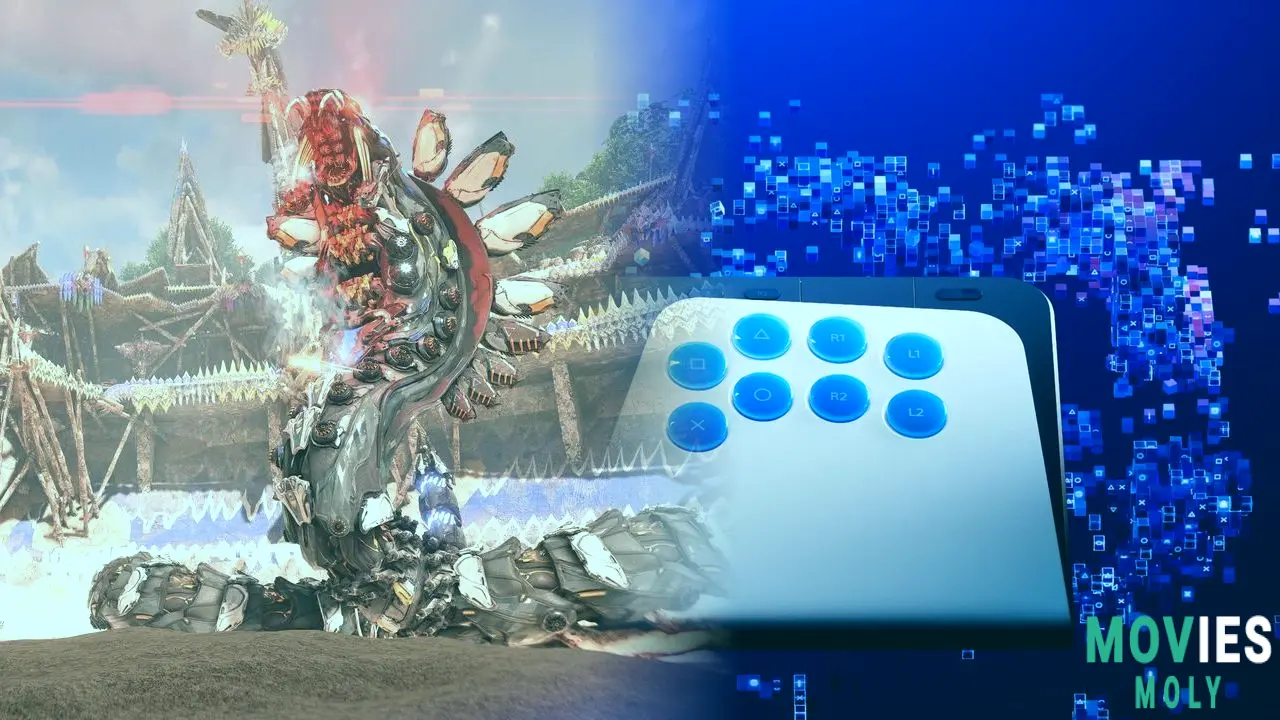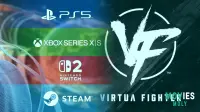Doesn't it seem like Sony PlayStation has been making some huge movements lately? We're witnessing a transformation, a genuine push into new ground for the organization. Two things jump out right now: the reveal of their first wireless combat stick, the FlexStrike, and a really aggressive lawsuit against Tencent over their Light of Motiram game, which Sony claims is far too similar to Horizon. These aren't isolated instances; they reveal a lot about PlayStation's direction, particularly with the Ps5, and what's next for us gamers.
It's always exciting to see a business like Sony, which is known for its consoles and excellent exclusive games, venture into new hardware markets. Then there's the intellectual property issue, which is a big one in the game industry. Let's take a look at what this all implies for the future of PlayStation.
The FlexStrike is Sony's entry into competitive gaming hardware.For a long time, if you wanted a high-quality fighting stick for your PlayStation, you had to look at third-party solutions. However, Sony has entered the ring with the FlexStrike. It's a significant statement, especially because Evo 2025 is just around the corner and the FlexStrike will be on show. This isn't just another gaming peripheral; it appears like Sony is making a significant commitment to the competitive fighting game industry, which we haven't seen from them previously.
FlexStrike Features & Design Innovations.
The FlexStrike, previously known as Project Defiant, will be available in 2026 and will include a number of impressive features. We're talking about mechanical switch buttons, which are essential for competitive gaming due to their responsiveness. And guess what? You can replace out the restrictor gates without using any tools. It includes square, circular, and octagon gates, as well as built-in storage sections in the stick itself. There's also a sling carry case provided, which makes it very easy to transport to a friend's house or tournament. It also has a rechargeable battery, so you can start playing right away.
This emphasis on first-party accessories, following the DualSense Edge and PlayStation Portal, indicates that Sony is no longer only creating consoles. They are creating an entire ecosystem of premium gaming accessories that are expressly built to operate with their hardware.
Speculated pricing and market positioning
Here's the kicker: we don't yet have a price. And if you're like me, that makes you nervous. Sony has a history of charging a premium for its products. Just look at the DualSense Edge; it's an excellent controller, but it's not cheap. When you compare the FlexStrike to other high-end fight sticks on the market, such as PDP's Victrix Pro FS (which can cost $399) and Hori's Fighting Stick Alpha (about $199), you start to wonder. Even though the FlexStrike isn't as configurable as some of these, I wouldn't be shocked if it costs about $249. It's a niche piece of hardware, so they may simply price it higher to reflect this.
Comparing FlexStrike vs Leading Fight Sticks
While the FlexStrike does not provide as much customization as other combat sticks, it is definitely built for a seamless user experience. You can use standard DualSense button inputs or keep your PS5 controller connected to navigate menus. Once linked, you can wake up your PS5 by pressing the PS button. It's all about the integration, making it feel like a genuine member of the PlayStation community.
Sony's FlexStrike is more than simply a new fighting stick; it demonstrates PlayStation's dedication to the competitive gaming industry and its unique technology. #PlayStation #Flex Strike
PlayStation Link Technology is a game changer for wireless peripherals.

One of the FlexStrike's most intriguing features is the utilization of PlayStation Link. This isn't your typical Bluetooth; it's Sony's breakthrough ultra-low latency wireless technology. For professional gaming, every millisecond counts, and Link is intended to reduce that latency. This means your inputs are nearly instantaneous, providing you a significant advantage in fast-paced fighting games. It is the same technology that drives the PlayStation Portal, and it has significant implications for the whole PlayStation ecosystem.
Think about it: ultra-low latency across all of your PlayStation gadgets. That is a significant advancement in wireless gaming and demonstrates Sony's commitment to performance. It makes me wonder what additional peripherals will support Link in the future. Could we expect new headsets, or perhaps different sorts of controllers, to benefit from this super-fast connection?
With PlayStation Link, Sony is pushing the limits of wireless gaming. Ultra-low latency is essential for competitive gameplay. #PS5 #PlayStation Link
Unpacking the Sony-Tencent Horizon Lawsuit

Switching gears, let's talk about the Horizon lawsuit. It's a significant deal, and it has everyone talking about intellectual property in gaming. Sony is suing Tencent, claiming that its new game, Light of Motiram, is a "slavish clone" of their Horizon series. This isn't a minor complaint; Sony is requesting that the court stop Tencent from distributing the game and seek damages.
Claims of 'Slavish Cloning' and Evidence
If you've seen the trailer for Light of Motiram, the similarities to Horizon Zero Dawn and Horizon Forbidden West are impossible to miss. We're talking about a future, post-apocalyptic planet overrun by massive robot beasts. Humans live in tribes and fight these machines for survival. Even the main character, a raven-haired woman, wears an attire and uses a device that looks quite similar to Aloy's. Fans have taken notice, with comments such as "When you lend your work to a school friend and tell him to copy it but change some things." Sony's complaint even refers to fan reactions and news articles that point out the "shameless" parallels.
GDC Pitch and Sony's Rejection
What makes this even more bizarre is Sony's assertion that Tencent asked them in 2024, via their Aurora Studios, to collaborate on a mobile Horizon spinoff. Sony apparently said no. Nonetheless, Tencent continued to develop Light of Motiram. Sony claims they attempted to settle the disagreement amicably, but Tencent allegedly attempted to license Horizon again, and Sony declined once more. It suggests that Tencent was fully aware of what they were doing here.
Legal Precedents and Industry Implications
This action is about more than simply Horizon and Light of Motiram; it is about creating a precedent for the whole gaming industry. If Sony wins, other studios may think twice about producing games.



